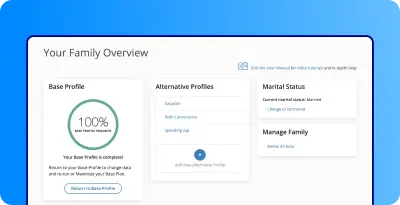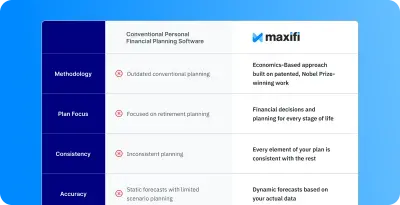Estate Planning
Estate planning is the process of arranging your financial and legal affairs so your assets are distributed according to your wishes after death or during incapacity. It includes documents like wills, trusts, and powers of attorney, helping families reduce conflict, minimize taxes, and ensure loved ones are cared for.
Estate planning applies to nearly everyone, not just the wealthy. Beyond asset distribution, comprehensive estate planning addresses healthcare decision-making during incapacity, guardianship for minor children, probate avoidance strategies, digital asset management, and protection of beneficiaries. The process involves coordinating multiple legal documents and financial tools to work together cohesively. While simple situations may be handled with basic documents, complex circumstances involving business ownership, blended families, multi-state property, or significant assets typically benefit from professional legal guidance to ensure documents are properly executed, tax strategies are optimized, and all planning elements align with overall goals.
This guide explores why estate planning matters for everyone, how needs evolve through different life stages, key components of comprehensive estate plans including essential documents, practical checklists for getting started, and common questions about wills, trusts, probate, and related topics. Whether evaluating estate planning needs or seeking to understand how various documents work together to protect assets and ensure wishes are honored, these educational concepts provide context for discussions with estate planning attorneys and financial professionals.

Key Takeaways
- Estate planning arranges financial and legal affairs to distribute assets according to your wishes after death or during incapacity
- Federal estate tax exemption is $13.99 million for 2025 ($27.98 million for married couples), permanently increasing to $15 million ($30 million for couples) starting January 1, 2026 under the One Big Beautiful Bill Act
- Twelve states plus District of Columbia have estate taxes with exemptions ranging from $1 million to over $13 million, requiring state-level planning for residents
- Six states have inheritance taxes paid by beneficiaries rather than estates, with rates often depending on relationship to deceased
- Wills must go through probate which typically takes 6-24 months, costs 3-7% of estate value, and becomes public record
- Trusts typically bypass probate entirely while remaining private and allowing management of assets during lifetime if you become incapacitated
- Beneficiary designations on retirement accounts and life insurance supersede wills, making coordination essential to avoid unintended distributions
- Powers of attorney are critical for incapacity planning, designating who makes financial and healthcare decisions if you cannot
- Estate plans should be reviewed every 3-5 years minimum and immediately after major life events like marriage, divorce, births, deaths, or moves
- Digital assets require specific authorization for executors to access online accounts, social media, cryptocurrencies, and digital photos
- Estate planning remains important even below federal exemption thresholds for probate avoidance, incapacity planning, guardian designation, and state tax considerations
- Multiple documents work together in comprehensive plans including wills, trusts, financial and healthcare powers of attorney, living wills, and beneficiary designations
Why Estate Planning Matters for Everyone
Many people hear "estate planning" and assume it's only for the wealthy. In reality, the basics of estate planning apply to almost everyone. At its core, estate planning means creating a clear plan for how your money, property, and healthcare decisions will be handled if you can't make them yourself. It can help to minimize taxes and legal fees, simplify the transfer of assets, and reduce stress and conflict for loved ones.
For families, the value goes beyond dividing assets. Family estate planning helps protect children, provide for dependents, and guide loved ones through difficult times. Without a plan, the state's laws, rather than your wishes, decide what happens. This can lead to delays, added costs, and even disputes among friends and family.
Estate planning is also about peace of mind. Having your estate documents in place ensures that your healthcare preferences are respected, your assets are handled efficiently, and your family avoids unnecessary stress during already challenging circumstances. Whether you're 30 and just starting a family or 70 and preparing for retirement, a basic estate plan makes your intentions clear and safeguards your loved ones.
It's important to note that for 2025, the federal estate tax exemption is $13.99 million per individual ($27.98 million for married couples filing jointly). In July 2025, the One Big Beautiful Bill Act was signed into law, permanently increasing this exemption to $15 million per individual ($30 million for married couples) starting January 1, 2026, with annual inflation adjustments thereafter. This means the vast majority of estates won't face federal estate taxes. Additionally, 12 states plus D.C. have their own estate taxes with lower exemptions (as low as $1 million in some states like Oregon and Massachusetts), and 6 states have inheritance taxes. Even if your estate isn't large enough to trigger taxes, estate planning remains crucial for avoiding probate, protecting healthcare decisions, and ensuring smooth asset transfers.
Estate Planning at Different Stages in Life
Your estate planning needs will change as life circumstances evolve:
Young Adults: Even without significant assets, a simple will, a durable power of attorney, and a healthcare proxy can make sure someone you trust can handle financial or medical matters if needed. This stage should also include designating beneficiaries on any retirement accounts or life insurance, and considering who would make healthcare decisions if you're incapacitated.
Parents and Midlife Families: This stage often brings more responsibility. Consider guardianship designations for children, term life insurance, and trusts to provide financial security if something happens unexpectedly. Make sure to update it after significant life changes. This is when many people transition from DIY estate planning to working with an attorney, especially when establishing trusts for minor children or planning for complex family situations like blended families.
Retirees and Older Adults: With larger savings and approaching legacy decisions, this phase emphasizes minimizing taxes, updating beneficiary designations, and preparing for long-term care. Regular reviews of documents are especially important here. This stage should also address digital assets (online accounts, photos, cryptocurrencies) and consider whether long-term care insurance or Medicaid planning is appropriate.
Key Components of Estate Planning
Estate planning isn't just about drafting a single document; it's about putting together the right pieces so that your wishes are carried out smoothly. While the exact details vary by person, most plans include a combination of estate documents that cover both financial and healthcare decisions.
Will: Outlines who inherits your property and can name a guardian for minor children. It is often the first step in estate planning. However, wills must go through probate (a court process that typically takes 6-24 months, costs 3-7% of the estate's value, and becomes public record).
Trusts: Legal arrangements that hold assets for beneficiaries. A revocable living trust avoids probate, can be changed anytime, and keeps your affairs private, but provides no tax benefits. An irrevocable trust cannot be changed once established but may offer asset protection and potential tax benefits for specific planning goals. Most people use revocable living trusts as the foundation of their estate plan. Can help avoid probate, manage property during your lifetime, and in the case of irrevocable trusts, provide tax benefits.
Durable Power of Attorney: Allows a trusted person to make financial or legal decisions for you if you become incapacitated. "Durable" means it remains in effect even if you lose mental capacity.
Healthcare Power of Attorney (Healthcare Proxy): Designates someone to make medical decisions on your behalf if you are unable to. This is separate from financial power of attorney.
Living Will/Advance Directive: Specifies your end-of-life care wishes, including preferences about life support, resuscitation, and other medical interventions. This is different from a healthcare power of attorney.
Beneficiary Designations: Found on retirement accounts, life insurance, and some bank accounts. These supersede (legally override) instructions in your will and transfer directly to named beneficiaries, bypassing probate entirely. A common and costly mistake is failing to update beneficiaries after major life events like divorce or remarriage, which can result in ex-spouses receiving assets intended for current family members. These override instructions in a will and can help to bypass probate, so keeping them updated is critical.
Executor: The person you appoint to carry out the instructions in your will and handle estate administration. Executors are responsible for filing the will with probate court, gathering and managing assets, paying debts and taxes, and distributing assets to beneficiaries (a process that can take 6-24 months). Choose someone who is trustworthy, organized, financially responsible, and willing to serve. You can name co-executors to share responsibilities or designate successor executors as backups.
Guardianship Designations: Names who will care for your minor children or dependents.
Letter of Intent: A nonbinding document that provides additional guidance for loved ones, such as funeral wishes or personal messages, that aren't typically covered in legal documents.
Digital Asset Planning: Increasingly important for online accounts, social media, email, digital photos, and cryptocurrencies. Your estate plan should include instructions and authorization for your executor to access these accounts, along with a secure password management system.
Professional support is often necessary, especially for complex estates. An estate planning lawyer helps draft and review documents, explain state laws, and suggest strategies to minimize taxes or avoid disputes. Larger or more complex estates may benefit from working with specialized estate planning law firms that provide a full range of services.
Estate Planning Checklist
Getting started with estate planning can feel overwhelming but breaking it into steps makes the process more manageable. While not all steps will apply to everyone, the following provides a breakdown of the most common parts of the estate planning process:
FAQs About Estate Planning
Important Considerations
This content reflects estate planning laws, federal and state estate tax exemptions, probate procedures, and legal requirements as of 2025 and is subject to change through legislative action, regulatory updates, or court decisions. Federal estate tax exemptions are $13.99 million in 2025, increasing to $15 million starting January 1, 2026 under the One Big Beautiful Bill Act signed July 4, 2025, with annual inflation adjustments thereafter. State estate and inheritance tax laws vary by jurisdiction and may be modified through state legislation. Legal requirements for estate planning documents including execution, witnessing, and notarization vary significantly by state and are subject to statutory changes.
This content is for educational and informational purposes only and does not constitute legal, tax, or financial advice. The information provided represents general educational material about estate planning concepts and is not personalized to any individual's specific circumstances. Estate planning involves complex legal and tax considerations that vary dramatically based on family structure, asset composition, state of residence, and individual goals. Legal requirements for document execution, probate procedures, tax implications, and planning strategies differ by state and individual situation. The cost ranges, timelines, and procedures discussed are general estimates that vary significantly by jurisdiction and complexity. The examples and scenarios presented are for educational illustration only and do not constitute recommendations for any individual's estate planning decisions.
Individual estate planning decisions regarding wills, trusts, powers of attorney, beneficiary designations, tax strategies, and document execution must be evaluated based on your unique situation, including asset types and values, family circumstances, state of residence, tax exposure, health considerations, and personal goals. Estate and tax laws are complex and subject to frequent changes. What may be discussed as common in estate planning literature may not be appropriate for any specific person. Please consult with qualified estate planning attorneys, tax professionals, and financial advisors for personalized guidance before creating, signing, or relying on any estate planning documents. This educational content does not establish any attorney-client, tax preparation, or advisory relationship. Estate planning attorneys are licensed to practice in specific states, and laws vary by jurisdiction.
Disclaimer
This article provides general educational information only and does not constitute legal, tax, or estate planning advice. Beneficiary designations, estate laws, and tax regulations vary significantly by state, account type, and individual circumstances. The information presented here is not intended to be a substitute for personalized legal or financial advice from qualified professionals such as estate planning attorneys, tax advisors, or financial planners. Beneficiary rules are subject to change and can have significant legal and tax implications. Before designating, changing, or making decisions about beneficiaries, you should consult with appropriate professionals who can evaluate your specific situation and applicable state and federal laws.




